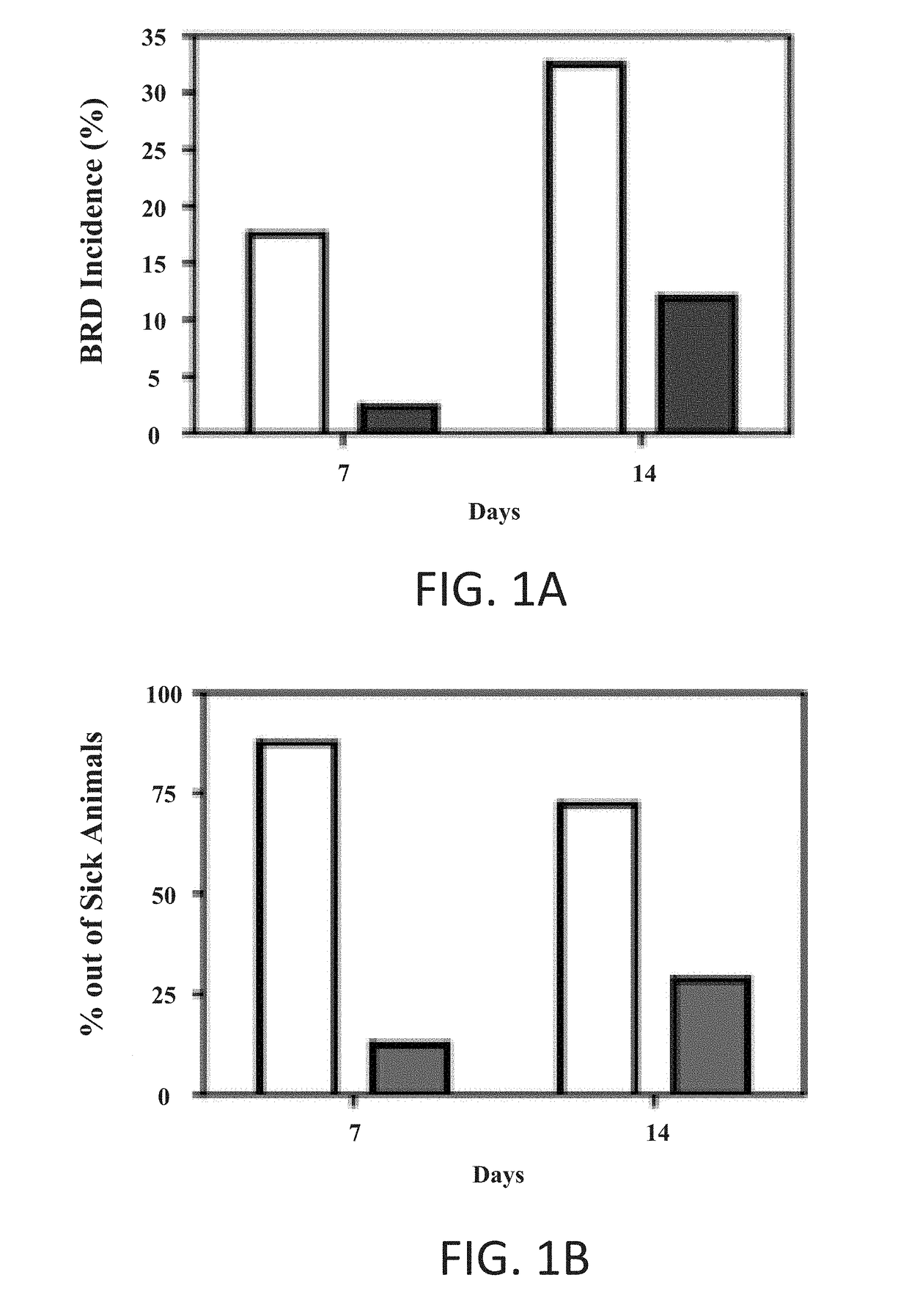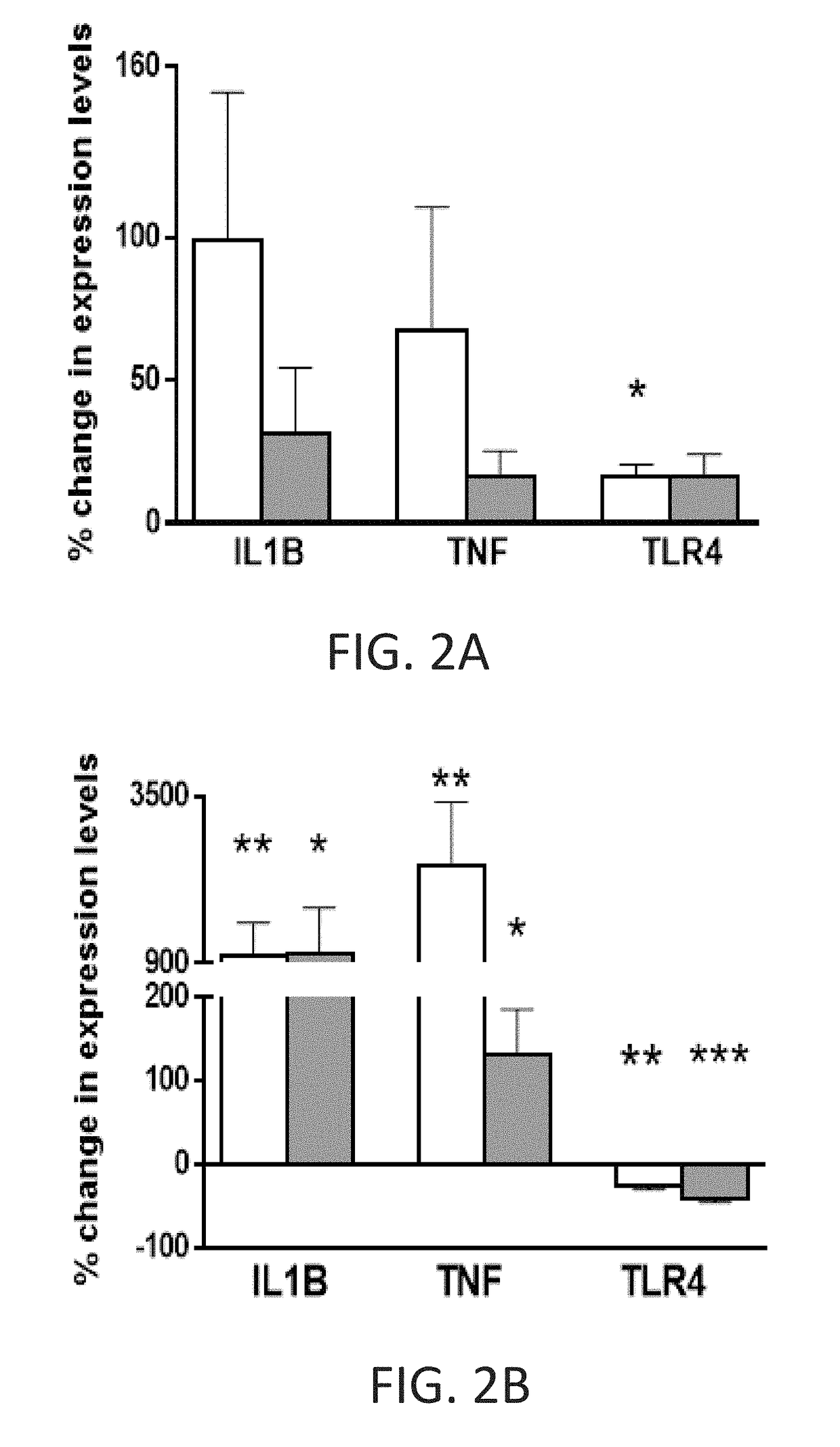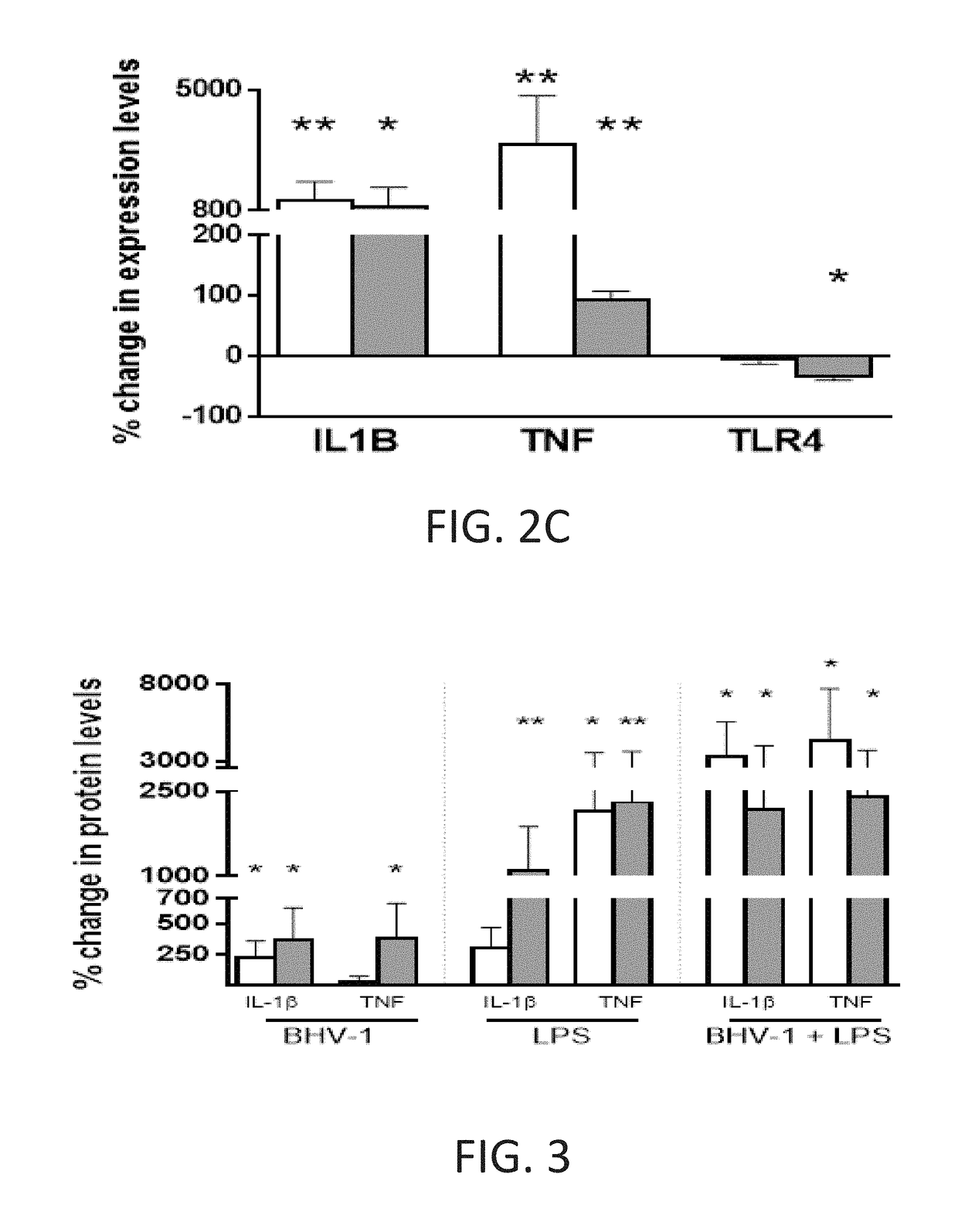Enhanced immune response in cattle upon treatment with nitric oxide
a technology of nitric oxide and immune response, applied in the field of immune activation in, can solve the problems of loss of milk production, negative impact on carcass characteristics, and current vaccination programs and pharmaceutical therapies are not optimal
- Summary
- Abstract
- Description
- Claims
- Application Information
AI Technical Summary
Benefits of technology
Problems solved by technology
Method used
Image
Examples
example embodiments
[0048]An initial overview of invention embodiments is provided below and specific embodiments are then described in further detail. This initial summary is intended to aid readers in understanding the technological concepts more quickly, but is not intended to identify key or essential features thereof, nor is it intended to limit the scope of the claimed subject matter.
[0049]Nitric oxide (NO) is a naturally occurring nano-molecule that plays a major role in a variety of physiological processes including modulation of wound healing, vasodilation, neurogenesis, angiogenesis and is both a modulator and effector of the host innate immune response. A variety of immune cells (such as dendritic cells, NK cells, macrophages, mast cells, eosinophils, neutrophils, and T cells, for example) produce, and respond to, NO. The NO released by these cell types has a multifunctional concentration dependent role in the immune response which includes but is not limited to antimicrobial; both tumoricid...
example 1
[0097]Eighty-five, crossbred, multiple sourced, commingled commercial weaned beef calves were obtain for these studies. All studies were conducted at the Lacombe Research Centre beef research facility and all management practices followed Canadian Council of Animal Care guidelines and Canadian Beef Cattle Code of Practice guidelines. In addition, the research protocols were reviewed and approved by the Lacombe Research Centre animal care committee. The calves were procured through a conventional auction system and all animals had been exposed to between 4-6 h of transport prior to the study. These calves were chosen in order to provide study groups displaying a bovine respiratory disease (BRDc) incidence range of 30-60% which is typical of the beef industry in Canada for these “put together” herds of cattle. On arrival at Lacombe the calves were off loaded, weighed, and sampled for saliva and blood using methods known in the art.
[0098]The calves were randomized to treatment and cont...
example 2
BHV-1 Viral Preparation.
[0119]The BHV-1 viral strain (clinical isolate) was obtained from the Animal Health Center (British Columbia ministry of agriculture) in Abbotsford, Canada. A Stock of the BHV-1 virus was grown in Madin-Darby Bovine Kidney Epithelial (MDBK) cells (ATCC® CCL-22™) for 48 hrs, with medium containing 2% fetal bovine serum (FBS). The stock of virus was prepared as clarified cell-free supernatants. Virus concentration of the stock was determined by standard plaque assay on MDBK cells. The BHV-1 stock virus titer was calculated to be 1×107 to 4.4×107 plaque forming units (PFU) / ml. Aliquots (1 ml) of viral stock were stored at −80° C. A fresh aliquot of stock was thawed and used for each experiment.
LPS Bacterial Extraction Preparation.
[0120]M. haemolytica bacterial cultures were isolated and obtained from the Agriculture and Agri-Food Canada Research Centre (Lethbridge, Canada). Bacteria were grown to 0.5 McFarland standard. Subsequent 0.5 ml aliquots of these prepar...
PUM
 Login to View More
Login to View More Abstract
Description
Claims
Application Information
 Login to View More
Login to View More - R&D
- Intellectual Property
- Life Sciences
- Materials
- Tech Scout
- Unparalleled Data Quality
- Higher Quality Content
- 60% Fewer Hallucinations
Browse by: Latest US Patents, China's latest patents, Technical Efficacy Thesaurus, Application Domain, Technology Topic, Popular Technical Reports.
© 2025 PatSnap. All rights reserved.Legal|Privacy policy|Modern Slavery Act Transparency Statement|Sitemap|About US| Contact US: help@patsnap.com



